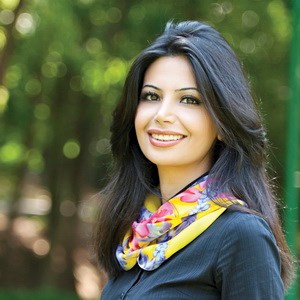Angels in Iran

In 2009, the Iranian government was trying to track down a large Christian organization that was evangelizing in their capital city. Little did they know the culprits who had distributed 20,000 Farsi New Testaments were two young women working out of their apartment. Maryam Rostampour and Marziyeh Amiridazeh converted from Islam when they "met Jesus," as they say, and ever since, they've been bursting with the need to share the message of Christ. They began distributing Bibles methodically through the neighborhoods of Tehran, and started two house churches that met in their small apartment.
When Maryam and Marziyeh were arrested and taken to Tehran's notoriously brutal Evin Prison in March 2009, it seemed their ministry was about to come to an end. They spent the following nine months in filthy conditions subject to maltreatment and neglect. Yet, in a truly Genesis 50:20 kind of way, what man meant for evil, God intended for good: Not only did their ministry take on a new form in prison, but it blossomed as their reputation grew behind bars. As they gained attention from human rights organizations who were outraged at their arrest, an international outcry eventually led to their release.
Even since, their ministry has continued to expand as they were able to chronicle their experience in a new book, Captive in Iran (Tyndale Momentum, April 2013). Today, the two women live in the Atlanta area, and they have been traveling to churches around the U. S. sharing their inspiring testimony. When they visited Christ Community Church in St. Charles, Illinois, in late July, they spent some time with TCW to share about evangelism, prayer, and what it means to have a lifestyle of faith.
Meeting Jesus in Evin
When Evin Prison became their home, everyone who met Maryam and Marziyeh also met Jesus. "When we were talking to people and praying for them, we tried to show them who Jesus is, what his teachings are, and what the truth is by our behavior rather than our words: by respecting them, loving them, and understanding their situations. Our behavior changed those people," says Marziyeh.
It's true that Maryam and Marziyeh are gifted evangelists, but more than that, they are women who have found Jesus as the lover of their souls. "When we became Christians," Marziyeh says, "we didn't just convert to the Christian religion—we were both in love with Jesus."
They can't help but share the love of Christ because it is something so central to their own identity.
Still, it was exhausting to be surrounded by such corruption and sadness each day, and they learned to be reliant on the Holy Spirit to refuel them. "Sometimes we became tired," says Marziyeh. "We wanted to end it; we became so angry. They killed some of our friends, and we are human beings. But God is very patient. The Bible says, 'My thoughts and my ways are above your thoughts and your ways.' I realized that God is very patient. He loves all of us—even those cruel people—and he is giving them a chance to confess their sins and to return to him."
Praying powerful prayers
For both of the women, prayer plays a huge role in their faith. In Evin inmates—and even prison guards—constantly asked them for personal prayer. When asked about their own prayer lives, it's obvious that prayer is as natural to them as breathing.
"We call God 'Daddy,'" Maryam says. "Every day, from day to night, we find ourselves talking to him about everything. When we want to make a decision, we just talk to him. It's so real to us. It's like living with him, and we always feel that he is with us; when we're eating, when we're out, when we're driving, we're talking to him. We're having this conversation with him."
Powerful prayers breed more powerful prayers. Maryam and Marziyeh had faith that God heard them, so they prayed boldly, and their prayers were often answered with real healing and change, increasing their faith and the faith of those around them, and so the cycle continued. "We could feel the presence of the Holy Spirit. It wasn't just for other people; it was for us," says Maryam. "We could see the Holy Spirit, how his presence gave us peace, and it was so real. I wish I could explain it by words. Because of our experiences and the miracles we saw, my relationship with him now is more real to me."
Living the Bible
Maryam and Marziyeh advocate for faith that is a lifestyle rather than just a set of beliefs. "When you follow religious rules, after a while you become tired, but when you're living with God, it's totally different," Marziyeh says.
This affects the way they approach the Scriptures. They say that rather than reading the Bible every day, they choose to "live with verses" by focusing on a small portion of the Bible, and applying it as they go about their day.
"Sometimes we just read the Book without taking anything from it," says Marziyeh. "When we were in prison, we learned how to live with verses. We didn't have a Bible for nine months, but God reminded us of so many verses, like how we should forgive our enemies."
Making advocates
Maryam says she is glad for the opportunity they have to share their story and the stories of women who are under oppression from the Islamic regime, but her vision doesn't end with Iran.
"We believe that it's not just sharing our stories and the stories of our people with Americans; we believe that God has a plan for Americans, too," Maryam says. "We experience this in churches when we speak. Our language is not perfect, and sometimes we cannot express our feelings because of the language barrier, but we experience that God is using this message to talk to Americans and to encourage them to have a real relationship with him. After the service, many people come and tell us that they want to have a real relationship with God, not just following religious rules, and we become so encouraged."
Part of their mission, too, is to encourage Americans to support Christians in persecuted areas. Their own release from prison was largely due to the international support they received. Though they had high-profile advocates like the United Nations, Amnesty International, and even the Vatican, much of their support came from everyday Christians who felt compelled to write letters to their prison's administrators. In fact, Evin Prison received 40 to 50 letters a day from the global church while it held Maryam and Marziyeh within its walls. For religious prisoners, letters like these can be crucial for putting pressure on the right people to acquire release. Their book's website provides information that enables people from around the globe to join together in support for their brothers and sisters in Christ, whether it's through prayer or through letters advocating for release.
Marziyeh's words for Christ Community Church were simple and honest: "As Christians, we must be responsible for those in persecution. Pray for them. Support them."
Aside from traveling and speaking, Maryam and Marziyeh are studying to pursue international law so that they can be a voice for their people. If you'd like to learn more about Maryam and Marziyeh's story, read this Christianity Today interview. For more on the persecuted church in Iran, visit 48hoursforfreedom.org. And for more on prisoners around the world, see prisoneralert.com, a ministry of Voice of the Martyrs.
Amber Stenberg is an editorial intern at Today's Christian Woman. Follow her on Twitter at @stenberg_a.
Read more articles that highlight writing by Christian women at ChristianityToday.com/Women
 Read These Next
Read These Next
 Solving the Global Water CrisisIt takes more than wells to solve this worldwide problem.
Solving the Global Water CrisisIt takes more than wells to solve this worldwide problem. Sharing FaithHelp your child show God's love to his friends
Sharing FaithHelp your child show God's love to his friends
 A Gay Son's Tribute to His MomFor years I ran toward drugs and gay relationships while my mother persisted in prayer and trusted in God's faithfulness.
A Gay Son's Tribute to His MomFor years I ran toward drugs and gay relationships while my mother persisted in prayer and trusted in God's faithfulness.








 Homepage
Homepage
